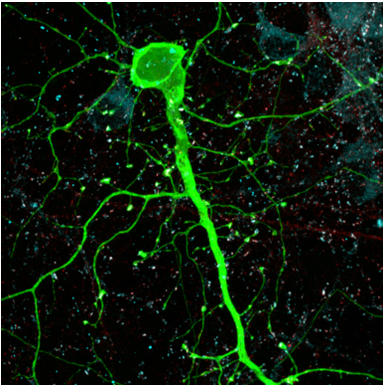Tag: Research
-

New Leadership Named for Medical Scientist Training Program
Hossein Ardehali, MD, PhD, has been named the new director of Feinberg’s Medical Scientist Training Program; Melissa Brown, PhD, has been named associate director of advising and Xunrong Luo, MD, PhD, the associate director of admissions for the program.
-

Going With the Ion Flow
Northwestern Medicine scientists are diving deep into the structure and function of ion channels to inform new therapies.
-

Trial Shows Drug Rapidly Reverses Blood Thinner’s Effects
The drug idarucizumab rapidly reversed the anticoagulant effects of the blood-thinner dabigatran in emergency situations, according to a recent phase III clinical trial.
-

Symposium Highlights Opportunities for Graduate Students and Postdoctoral Fellows
Graduate students and postdoctoral fellows in the biomedical field gathered for an all-day symposium dedicated to showcasing research and exploring career options.
-

Online Tool Predicts Heart Disease Events in Young Adults
An online calculator showed initial success at predicting the risk of heart disease events among young, healthy adults, according to a new study in JAMA Internal Medicine.
-

Novel RNA Discoveries Could Improve Stem Cell Research
A study has shown that a recently-discovered type of RNA is specific to certain cell types, which may make it possible to use those RNA sequences as a marker in stem cell research.
-

Making a Mark in Translational Medicine
Feinberg — and the University more broadly — is increasingly focused on ensuring that exciting discoveries made by basic scientists are also soon turned into treatments that impact human health.
-

Novel Approach Offers New Insights Into HIV’s Lifecycle
Northwestern Medicine scientists have developed a novel method of tracking HIV infection, allowing the behavior of individual virions to be connected to infectivity.
-

Sleep Patterns Contribute to Racial Differences in Disease Risk
Poor sleep may be a significant factor driving the differences in risk of cardiometabolic disease between African-Americans and European-Americans, according to a new study.
-

Active Non-Coding DNA May Help Pinpoint Genetic Risk for Psychiatric Disorders
Northwestern Medicine scientists have demonstrated a new method that helps to pinpoint which genetic variants might be most important in the development of schizophrenia and related disorders.





